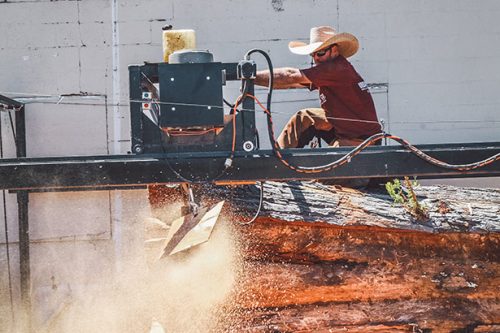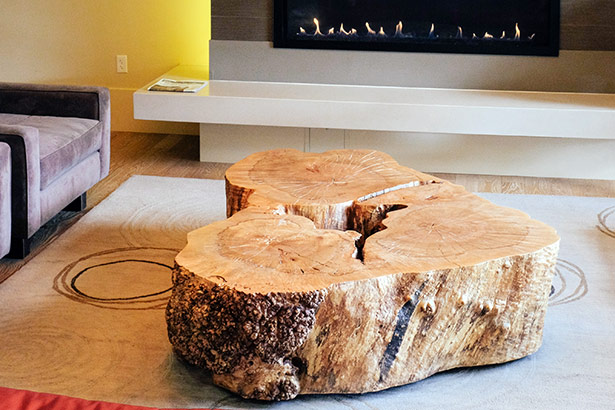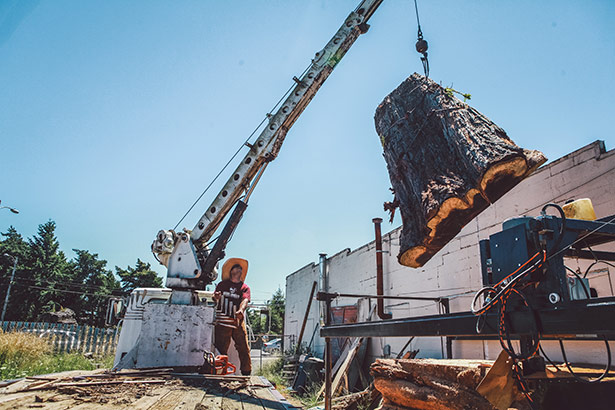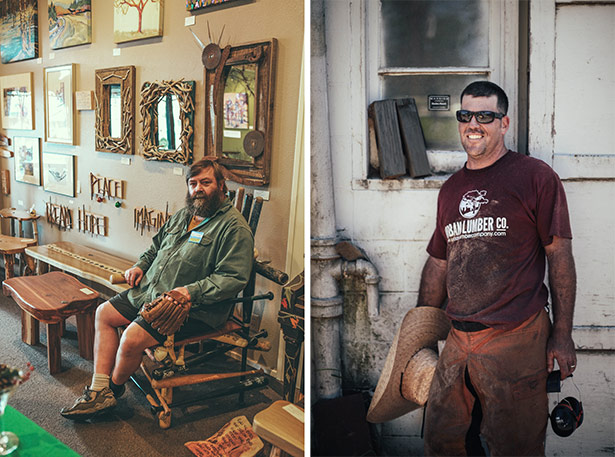
Sony opened its Springfield disc factory in 1994. The plant shut down nine years later, ousting 277 local workers, serving as yet another example of the fickle way corporations can enter a community and abruptly leave. In Eugene, Hynix Semiconductor’s computer chip plant pulled out in 2008, leaving 1,100 people without work. In Lane County, applesauce producer Materne snubbed Coburg last year, and cities from Veneta to Cottage Grove have worked, some more successfully than others, to woo call centers. Lane County and its cities have spent a lot of time, effort and cash to lure large outside, often foreign, corporations into the area to create jobs and tax money. But many of them leave when the tax breaks end or the economy gets rough.
We see the new economy as all about sustainable practices with a local focus, something that Oregon does well. Eugene and Springfield already boast local businesses in industries spanning the economic gamut, from craft beer, wine, cider and kombucha to handmade furniture, artwork and bushels of produce from our farmers markets. It’s hard to see why Lane County continues to invest in big business rather than develop the small industries that give Oregon its cachet. This spotlight on Urban Lumber Company, a local woodshop that specializes in salvaging urban trees, is the first in a series about the new economy, following the idea that Oregon doesn’t need corporations to swoop in and save the day: Oregon can save itself. — EW staffIn a flurry of sawdust and activity, the Urban Lumber Company Workshop in Springfield buzzes with the sounds of drilling and sawing. Towering branches, stumps and logs fill the workspace, each waiting its turn to become the next work of art carved into existence by owner Seth San Filippo and his fellow woodworkers, Josh Krute and Christian Jensen. These pieces of lumber, salvaged, reclaimed or sustainably harvested from all over the Eugene-Springfield area, are trees reincarnate. Instead of harvesting fresh timber from wild areas, Urban Lumber seeks out city trees that are dying, pose a threat to surrounding buildings or create some other kind of safety hazard. Rather than scrapping the lumber or sending it to landfills, Urban Lumber steps in and gives the wood another chance, collaborating with local businesses and individuals to create tables, doors, bed frames, countertops and everything else imaginable.
“As a woodworker looking for quality wood, it’s always hard to find good material,” says San Filippo, who opened Urban Lumber Company in 2006. “I started to see this resource in the urban trees we have around here. And I think it just makes sense. It’s really cool to give these trees a second life, even something that might outlive their first life.”
San Filippo’s work can be found all throughout town, but it is displayed most prominently at the Urban Lumber Furniture Showroom in downtown Eugene as well as incorporated into the city’s restaurants and businesses, like the giant slabs of wood that Autzen Stadium uses as 6-foot-by-9-foot tables. Urban Lumber mills all its own wood, so lumber arrives in the form of mossy, bark-covered chunks of tree and exits as finished pieces of custom furniture. San Filippo says he works with Lane County, the cities of Eugene and Springfield, local arborists and the parks department to locate trees that make suitable candidates for woodworking. Recently, San Filippo says, he and his team started acquiring wood from the reclaimed beams and timbers of old buildings, including broken-down barns and torn-down structures like the Douglas fir beams from the outdoor tennis courts at the UO. He says he’s not sure how the beams will be repurposed, but he’s currently negotiating with a restaurant in Portland that might use them as bar tops.
“It’s really interesting to work with people and get their ideas, and a lot of times the wood actually determines how the finished piece comes out,” San Filippo says. “It’s really fun to let the wood dictate the project.”
In the spirit of local collaboration, Eugene and Springfield businesses commission Urban Lumber to help create their signature looks. “We tend to be on the brewery and winery circuit,” San Filippo says. His work graces Oakshire Public House, the Hop Valley Tasting Room and, more recently, Pyrenees Vineyards’ tasting room in downtown Eugene.
 |
|
Bigleaf Maple coffee table at Inn at the 5th. Photo by Trask Bedortha.
|
In the lobby of Inn at the 5th, close to 5th Street Public Market, patrons can view a classic example of San Filippo’s handiwork — a coffee table made from the cross section of a bigleaf maple that foresters with the city of Eugene say was dying on the Inn’s property. “It’s a great example of how we love to do things,” San Filippo says. The 80-year-old maple was experiencing severe root rot and had decayed from the inside, giving it a hollow core. After the tree came down, the Inn contacted San Filippo about incorporating the lumber into the furniture of the hotel. In addition to the lobby table, which features the cross section with its hollowed-out middle surrounded by countable tree rings, Urban Lumber built about 55 other tables out of the felled maple. “It’s perfect,” San Filippo says. “That tree is now living forever, hopefully, about 50 feet from where it grew.”
Brian Obie, owner of 5th Street Public Market, says the project came about through a desire to both reuse the tree and save it in remembrance of the Eugene community and “the stories it would have told about the last 80 years, if it could.” He says that he values interactions with local businesses, as evidenced by the abundance of artwork at the Inn created by locals like glass artist Susie Zeitner. “We have 25 tenants here [at 5th Street Market] that are local purveyors of goods and services, so we are very enthusiastic and committed to that part of our world,” he says. “I think people are cognizant of helping sustain employment to grow our own community,” he says, adding that it’s important for people to care not only about the quality and health value of local products, but also about the wastefulness of shipping a product from Southern California or Mexico when it can be found in Lane County.
 |
|
Seth San Filippo moves trimmings from large salvaged tree being cut for table slabs. Photo by Todd Cooper.
|
Urban Lumber also serves as a resource for local artists like Tim Boyden of Out on a Limb Gallery, who uses Urban Lumber’s wood to create some of his works. Boyden’s pieces feature a combination of urban wood, driftwood, sustainable cuttings from living trees and salvaged items like chair legs and shoes from Boyden’s adventures in Dumpster-diving. Boyden uses his creative confluence of mediums to build one-of-a-kind items, like a baseball-themed chair that incorporates thrown-away baseball bats and a childhood mitt from Boyden’s friend who passed away. Boyden says he’s known for creating furniture out of repurposed items, like a chair he once made out of broken musical instruments. His gallery is filled with bits and pieces of Eugene history. “Eugene is a wonderful place for people who support local,” he says. “It’s a pretty special community.”
San Filippo says people love the idea of salvaged and local handmade products, and although the economic environment is tough, the interest in alternative sources for materials is growing. “We have a lot of community support, and it’s more and more all the time,” San Filippo says. “It’s a great place to do business and work, and I’m really happy and proud of putting money back into the community.”
 |
|
Left: Artist Tim Boyden with his baseball-themed chair at Out on a Limb Gallery. Photo by Todd Cooper.
Right: Seth San Filippo. Photo by Trask Bedortha. |